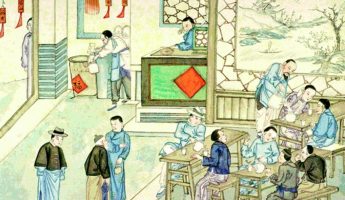On the land of China, there are many unique and interesting customs circulating around the sacred and subtle journey of pregnancy. Today, let’s unveil the mysterious veil of these bizarre customs during pregnancy and explore the stories and meanings behind them.
Custom 1: In the first three months of pregnancy, it is kept secret from the public
There is an ancient saying that goes, “In the first three months of pregnancy, the protection of the fetal god requires rest.” The older generation firmly believes that leaking good news of pregnancy too early will anger the fetal god and affect the safety of the fetus. From a modern medical perspective, these three months are precisely the most fragile period of the embryo, and the high miscarriage rate has led many families to choose to keep secrets until stability is achieved before sharing joy.
Custom 2: Stable residence, taboo for relocation
During pregnancy, it is even more inappropriate to move without touching the ground. The ancients believed that demolishing or moving houses during pregnancy would disturb the fetal spirit and be detrimental to the fetus. In fact, this custom is more based on the consideration of pregnant women’s need for rest. Moving requires effort and dedication, and sudden changes in the environment can also affect emotions, hence this statement.
Custom 3: The taboo of scissors and the worry of cleft lips
The saying ‘holding scissors during pregnancy, cleft lip babies come to look for them.’ This originated from the ancient concern for women’s sewing work, but in fact, cleft lip is mostly caused by chromosomal abnormalities and has nothing to do with scissors. Modern medicine reminds that during pregnancy, adequate rest should be taken to avoid overexertion.
Custom 4: Gentle tapping behind the back, a taboo for pregnant women
Three torches to protect the body, do not disturb behind your back. “The ancients believed that pregnant women had” flames “on their shoulders and backs, which could easily activate fetal qi when patted. From a practical perspective, sudden slapping may indeed startle pregnant women, especially those with weak physical conditions, or lead to adverse consequences. Therefore, it is better to be gentle and avoid such behavior.
Custom 5: Wedding and Funeral Ceremonies, Pregnant Women Avoid
Do not participate in weddings and funerals to avoid conflicts. In ancient times, transportation was inconvenient, and wedding and funeral activities took a long time and traveled a long distance, which was not conducive to pregnant women. In addition, greasy diet and traditional Chinese medicine containing alcohol are not suitable. This custom is actually a consideration for the physical safety of pregnant women.
Customs 6: Prohibition of holding infants, fear of crying and fussing
During pregnancy, do not hold a baby to prevent your own child from causing trouble. Traditional beliefs suggest that holding someone else’s baby during pregnancy can transmit a crying habit. Medically, it is recommended that pregnant women avoid carrying overweight babies to prevent risks such as premature birth. Safety first, be cautious when holding children.
Customs 7: Watching childbirth and fearing difficult childbirth
The ancients believed that witnessing the pain of childbirth would increase the difficulty of one’s own childbirth. Psychologically, witnessing painful scenes can indeed trigger tension and affect the process of childbirth. Therefore, maintaining a calm mindset is crucial for a smooth delivery.
Custom 8: The taboo of nails and the worry of birthmarks
The saying ‘No nails during pregnancy, no marks on birthmarks.’ Although there is no scientific basis for this, it reflects people’s hope for a flawless fetus. Birthmarks have complex causes and are mostly benign lesions. Modern medicine can provide various treatment methods. The key lies in early detection and treatment.
The above eight pregnancy customs, although not lacking in superstition, also contain deep care and good wishes for pregnant women and fetuses. What are the unique pregnancy customs in your hometown? Welcome to share, let’s feel together the inheritance of maternal love that transcends time and space.



